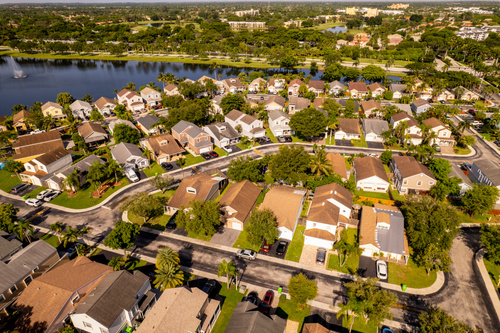Living in a community governed by a homeowners association (HOA) can have both benefits and drawbacks. In this blog post, we'll explore both sides of the coin to help you decide whether or not living in an HOA is right for you.
Benefits of living in an HOA
Sense of community
One of the main benefits of living in an HOA is the sense of community it can provide. Because everyone in the community is subject to the same rules and regulations, it can foster a sense of shared responsibility and a desire to maintain the community's aesthetic and value. This can be especially appealing if you're moving to a new area and want to be a part of a community where you know your neighbors and feel connected.
Increased property value
Another benefit of living in an HOA is the potential for increased property value. Because the community is governed by rules that promote the maintenance and upkeep of properties, it can help to maintain or increase the value of your home. This is especially important if you're planning to sell your home in the future, as a well-maintained community can be a major selling point for potential buyers.
Amenities & services
HOAs can also provide amenities and services that may not be available to individual homeowners. These can include things like swimming pools, clubhouses, fitness centers, and other recreational facilities. In addition, some HOAs may provide services like trash pickup, landscaping, and snow removal, which can be a major convenience for homeowners.
Drawbacks of living in an HOA
HOA fees
One potential drawback of living in an HOA is the cost. In addition to paying your regular mortgage or rent, you'll also be required to pay HOA fees, which can vary widely depending on the community and the amenities and services provided. These fees can add up over time, so it's important to consider whether you can afford them before moving into an HOA community.
Lack of autonomy
Another potential drawback is the lack of autonomy. As a member of an HOA, you'll be required to follow certain rules and regulations, which can be strict and may not align with your personal preferences.
For example, you may be required to maintain a certain level of landscaping, paint your house a specific color, or adhere to certain architectural guidelines. If you're someone who values your independence and the freedom to make your own decisions about your home and property, living in an HOA may not be the best fit for you.
Strict rules
Additionally, some people may feel that the HOA's rules and regulations are overly restrictive or unfair. If you have strong feelings about certain issues, such as whether or not you should be able to park your car in your driveway or hang your laundry out to dry, living in an HOA may not be for you.
Potential of conflict
Finally, living in an HOA can also bring with it the potential for conflict. Because everyone in the community is subject to the same rules and regulations, there may be times when people disagree about how those rules should be enforced or what the community's priorities should be. This can lead to conflicts and disputes, which can be stressful and time-consuming to resolve.
Ultimately, whether or not living in an HOA is right for you will depend on your personal preferences and circumstances. If you value the sense of community and the potential for increased property value, and you're willing to pay the associated fees and follow the rules, living in an HOA may be a good fit. On the other hand, if you value your independence and autonomy and don't want to be subject to strict rules and regulations, you may prefer to live in a community without an HOA.










